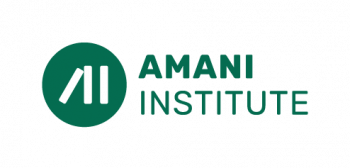- Micro-entrepreneurs are said to be by far the most common type of entrepreneurs in the world and form a large part of the informal economy in developing countries.
- SOMO supports social businesses in low-income communities to optimize their business strategies.
6 years ago, a young man in Kibera, Nairobi set out to start a business. As with many micro-entrepreneurs in Nairobi, he faced several challenges, key among them, access to information that could enhance his business skills. He was however armed with determination and a strong desire to set up a successful venture, selling healthy African meals, to earn a living. Having grown up in Kibera, he knew the ins and outs of the area, but little did he know that this would be a key factor in changing the trajectory of his entrepreneurship ambition.
Enter SOMO, an organization seeking to support social businesses in low-income communities that impact either health, education or environment. SOMO was setting up an accelerator program in Kibera and needed someone with a great understanding of the community to help them integrate and conduct outreach. They were introduced to our budding entrepreneur Joshua, who naturally also became part of their debut class of the acceleration program. Through SOMO’s support he would acquire knowledge and the much-needed business skills to kick off his restaurant business.
After three years of being part of the SOMO community, he took up a Community Relations Manager position at the organization. At this point he felt the need to grow his leadership skills and enrolled for a program in one of the universities in Nairobi. Soon after, he also enrolled for Amani Institute’s Leadership for Growth program at his line manager’s recommendation.
“Leadership for Growth was empowering. It helped me understand leadership styles and approaches, enabled me to empower my team but also motivated me to get out of my comfort zone,” says Joshua.
One of the course graduation requirements is that participants identify a challenge or opportunity within their businesses and develop a solution using the knowledge acquired from the course. This is referred to as the Business Innovation Project (BIP). For his BIP, Joshua developed a solution intended to contribute towards SOMO’s sustenance beyond donor funding. The solution, named Digi SOMO, is a set of digital business training tools that are available through WhatsApp, YouTube and a toll-free number. Through Digi SOMO, entrepreneurs learn skills such as record keeping and data management, generating invoices and receipts, marketing a business, financial management, customer relations among other topics at a subsidized cost.
“From the program, I also learnt to create an atmosphere where people can share freely and have the courage to have solution-oriented conversations and innovate,” he adds.
SOMO has had 12 managers attend the Leadership for Growth program, leading to development of other solutions such as Digi Kua and Tengeneza na SOMO. Digi Kua is a USSD and WhatsApp platform that allows businesses to record their transactions in real-time. Record keeping is a key step not only for cash flow management but also in easing access to funding. Tengeneza na SOMO on the other hand is a shared production facility that provides entrepreneurs with access to equipment, print services and standardized production processes at minimal costs.
Digi Kua, Digi SOMO and Tengeneza na SOMO are all projects that have come to life in the last one year, impacting over 1000 micro-entrepreneurs in Nairobi. While the world activated survival mode in a pandemic, the SOMO team did that and more by activating innovation. They are currently working on expanding their solutions beyond the areas where they work so as to reach a wider audience locally and in the region.
You may wonder what became of Joshua’s restaurant business … It is thriving! He has expanded into provision of catering services and is exploring a franchising model as a route to opening new branches. He enjoys his work at SOMO as it enables him to impact more entrepreneurs from low income communities.
At Amani Institute we believe that learning only produces value when it is applied and the SOMO team is a true reflection of this mantra.
Increase your organization’s effectiveness and innovation capacity by investing in your team’s leadership skills. Nominate your mid to senior level managers for the upcoming Leadership for Growth program by 5th April 2024.
Classes begin on 13th April 2024.





